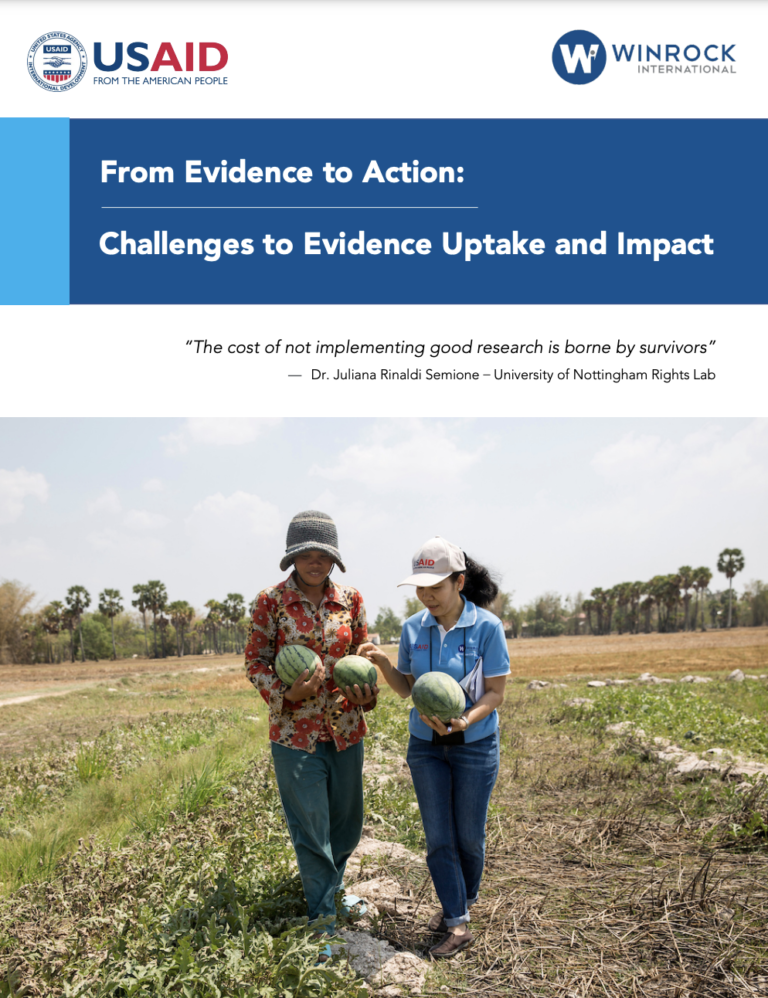On 10-12 November 2020, the USAID Asia Counter-Trafficking in Persons project hosted the 2020 CTIP Evidence Summit, “From Evidence to Action”, which included the two Summit discussions “Barriers to Evidence Uptake — Civil Society Organization (CSO) perspectives” and “Cultural and Logistical Barriers to Research and Dissemination”.
The discussions during these two Summit sessions revealed several common barriers to evidence uptake, mostly shared from the perspectives of project implementers. This brief synthesizes the two sessions and distills the key themes that emerged, reflecting attendees’ recurring concerns and values. Listed in alphabetical order, the most frequently discussed barriers to evidence uptake were challenges around access, collaboration, engaging funders, ethics or approval processes, feasibility, funding, relevance, time, and understanding. In addition, to these key themes, two identified needs from the participants were knowledge consolidation and strategy unification. This brief examines each of those themes and needs, as well as some of the solutions proposed by attendees.

